|
23/5/2024 0 Comments Built environment professionals across the Commonwealth renew their commitment to confronting global challenges together. May 2024Commonwealth associations representing architects, engineers, planners and surveyors have relaunched the ‘Built Environment Professionals in the Commonwealth’ (BEPIC), a voluntary collaboration that aims to advance advocacy, capacity building and climate action in response to the global challenges posed by climate change and rapid urbanisation.
The collaboration also responds to the findings of the Survey of the Built Environment Professions in the Commonwealth, published in 2020, which identified:
The findings of the survey are particularly important in light of the fact that nearly 50% of the projected increase in the World’s urban population to 2050 is forecast to be in Commonwealth countries where 95% of the cities most at risk from climate impacts are to be found. This growth represents a doubling of the urban population across the Commonwealth, from 1bn to 2bn in the next 30 years. BEPIC members include the Commonwealth Association of Architects (CAA), the Commonwealth Association of Planners (CAP), the Commonwealth Association of Surveying and Land Economy (CASLE) and the Commonwealth Engineers’ Council (CEC). The collaboration also recognises the work that has been undertaken by the members of the Commonwealth Sustainable Cities Initiative and the Declaration on Sustainable urbanisation adopted by Leaders at the Commonwealth Heads of Government meeting which took place in Kigali, Rwanda in 2022. First launched in 1997, BEPIC aims to strengthen the impact of its members through joint advocacy, knowledge sharing and continuing professional development. CAA President, Peter Oborn said: “The CAA is pleased to have renewed its commitment to BEPIC and looks forward to collaborating with built environment colleagues from around the Commonwealth as we work together to help leverage the Commonwealth advantage for greater impact.” CAP President, Jua Cilliers said: “Recognising the urgency of our shared challenges in urbanization and climate change, the Commonwealth Association of Planners is deeply committed to the principles and goals of BEPIC. Together, we can forge transformative pathways that not only respect our diverse cultural landscapes but also strengthen the resilience of our cities”. CASLE President Joseph Ajanlekoko said: “CASLE is delighted to renew our collaborative efforts with our colleagues in BEPIC. The challenges facing our professions within the commonwealth are numerous and diverse and only by facing them together do we have a chance of success.” CEC President, Dawn Bonfield MBE said: “What we know as built environment professionals is that none of us can work independently from one another, and this collaboration represents the reality of the systems in which we all exist, so we are delighted to be working together with BEPIC colleagues on these shared objectives.” BEPIC Objectives
Background to the members of BEPIC
The Commonwealth Heads of Government Meeting (CHOGM) takes place biannually and will next take place in Samoa in October 2024. BEPIC are working to build on the Declaration on Sustainable Urbanisation to align with the theme of One Resilient Common Future. END
0 Comments
Paper on events related to Climate Change in Mauritius
Between 13th and 19th January 2024, Mauritius was severely impacted by Cyclone Belal and Candice and some of the headlines read : Cyclone Belal causes heavy flooding in Mauritius after battering Reunion Mauritius is a tropical island regularly visited by cyclones and cyclones such as CAROL and ALIX in the late 1960’s brought a cultural change with construction of homes and other buildings in reinforced concrete as part of resilience building. Also, from experience over the years, Mauritius has in place, a tested and proven warning system with timely evacuation of residents from vulnerable areas to safe refuge centres. In this context we have a National Emergency Operation Centre (NEOC) since 2010. This centre becomes operational 24/7 the moment notice of heavy rainfall or cyclone is issued by the Meteorological Services. However, the recent cyclones and in general, weather patterns are showing that heavy deluge of rain are occurring over short periods leading to chaos leading to closure of schools and offices and heavy traffic jams, due to all trying to get home at the same time. In anticipation of these floodings, landslides, coastal erosion and coastal reprofiling, water security, Engineers are engaged in preparing a national drainage masterplan which is already being implemented in the worst flood prone areas. Cutoff drains upstream of residential areas as well as new drains in towns and villages are urgently being built to minimize overflooding by redirecting flows into newly created flood plains. For the low-lying area in the centre of Port Louis, where many parked vehicles were swept away, engineers have identified and recommended, that such areas are decreed as a no-parking zone when the meteorological services forecast 100 mm of rainfall in that catchment area for the duration of a specific timeframe. The coastal zone is proving to be the biggest challenge to prevent any coastal erosion and floodings because of 1) the waves (energy) impacting on the shore are from different direction depending on the coordinates of the cyclones and 2) when cyclonic conditions coincide with high tide resulting in backup of floods inland. Engineers contribution both in terms forecasting impacts from Cyclones and floodings to dealing with unforeseen situation such as resilience building for roads, and infrastructure are critical. The Institution of Engineers Mauritius is also driving a project for Engineering Graduate Degree courses, run by National Universities to be benchmarked with Washing Accord standards so that the Engineers of the future are educated to deal with as yet, unforeseen challenging issues. Raj H Prayag GOSK. PDSM. CEng. FIEM Commonwealth Engineers’ Council International Women’s Day Event, March 2024 Speaker BiographiesWelcome to the International Women’s Day webinar organised by the Commonwealth Engineers’ Council. WE invite you to join us to hear from four inspiring women from the Commonwealth talking about the 2024 theme of #InspireInclusion. Link to join: https://us02web.zoom.us/j/84307428083 Moderator: Dawn Bonfield President, Commonwealth Engineers’ Council Dawn Bonfield MBE FREng is Professor of Practice in Sustainable Development at King's College London, and Royal Academy of Engineering Visiting Professor of Inclusive Engineering at Aston University, working with young people on addressing the Sustainable Development Goals, as well as ethics, equity, diversity and inclusion in the engineering sector. She is currently President of the Commonwealth Engineers' Council. She is also the Founder & Director of Towards Vision, a not-for-profit which works towards a vision of diversity and inclusion in engineering, and founder of Magnificent Women, a social network exploring the history of women in engineering. She is former CEO of the Women's Engineering Society (WES), founder of International Women in Engineering Day (INWED), and an Executive Board Member of the World Federation of Engineering Organisations. Speakers Michelle Meaclem Co-lead WFEO Young Engineers/Future Leaders Working Group Michelle is a Civil Engineer at Tonkin + Taylor New Zealand with over 5 years’ experience across civil and stormwater design, climate resilience, and water infrastructure advisory. Michelle is a Commonwealth Engineers Council President’s Future Leader and is a passionate advocate for aligning the infrastructure sector to climate targets and the inclusion of young people, especially those in STEM, in climate policy making. She does this through her roles as the co-lead of the World Federation of Engineering Organisations’ Young Engineers/Future Leaders’ Working Group on SDG13: Climate Action (Working Group) and a Steering Committee member of the Commonwealth Youth for Sustainable Urbanisation network. In 2023, Michelle was a COP28 International Youth Climate Delegate and a finalist for Young Engineer of the Year. Michelle Maphosa Author and cofounder - Sibo the Engineer Program Michelle is the author of Sibo the Engineer series, an African educational children's program on STEM. A civil engineer and certified project manager, she is a passionate advocate for the increased quality of STEM education in Africa, as well as the uptake and retention of women in STEM. She is the co-founder of Tea in 60, a virtual mentorship and networking platform for Zimbabwean girls and women in STEM, and its offshoot STEMExplorers, which focuses on the early introduction of STEM to children under 12 years. Michelle has experience in construction and project management in government, private and development sectors. Michelle is an awardee of the Royal Academy of Engineering Africa Catalyst Program (Phase 4 and 5), and sits on various global, regional and national committees on Engineering Education and Capacity Building. Trudy Morgan President of the Sierra Leone Institution of Engineers Ing Trudy Morgan is President of the Sierra Leone Institution of Engineers, Council Member of the Professional Engineering Regulatory Council; Co-founder and first President of the Sierra Leone Women Engineers; a trustee with the UK based charity Engineers for Change (Sierra Leone); and the International Representative for the UK Institution of Civil Engineers. Following her first degree from Fourah Bay College, Sierra Leone, she started her career with Sir Robert McAlpine & Sons working on iconic buildings in London, followed by 11 years designing and building railway bridges and infrastructure across the UK. She completed her MBA at Cranfield and spent the next 10 working as a management consultant and business development specialist leading teams across 17 countries designing and constructing offices for a large UK government agency. She returned to Sierra Leone in 2010 where she has worked as a Consultant with the IFC, World Bank; and the United Nations. She has worked in many sectors including transportation, health, ICT amongst others. Passionate about youth and women empowerment, she has started several initiatives that support the growth and development of young people and women. Ing Trudy made history by becoming the first female Fellow from Africa, of the UK Institution of Civil Engineers. She has won several awards locally for her work with women engineers. In June 2020, she became the first female President of the Sierra Leone Institution of Engineers in its 50 year anniversary. And in November 2023, she was named as one of 274 engineering icons by Transport for London and the Royal Academy of Engineering. Valerie Kelsick Past President, Association of Professional Engineers, Trinidad and Tobago Regional Representative of the Caribbean and Americas Association of Professional Engineers of Trinidad & Tobago (APETT) Ms. S. Valerie Kelsick has an extensive and diverse background covering over 35 years combined experience in project management, project finance, banking, financial and management consulting, facility maintenance and consulting engineering. Her formal professional career culminated with a Project Officer/Analyst position at the Caribbean Development Bank followed by managerial positions at Republic Bank Limited. Ms. Kelsick holds an MBA in Finance & International Business, from Columbia Business School (USA), a Bachelor of Science degree in Civil Engineering from the University of Southampton (UK) and the PMI’s Project Management Professional (PMP) (USA) credential. She is a Registered Engineer with the Board of Engineering as well as a Fellow of the Association of Professional Engineers of Trinidad & Tobago (APETT). She also possesses various professional credentials having completed courses including Chartered Director Programme from Caribbean Corporate Governance Institute (TT), public private sector partnerships, mediation and construction contracts. Serving as Board Director on public and not for profit institutions, she has a passion for strategic governance efforts and influencing public policies. Ms Kelsick is a Past President of APETT, former Chair of the National Insurance Property Development Company Limited as well as a former Trustee of the Colleges of Science, Technology & Applied Arts of Trinidad & Tobago. She also serves on the Board of the Fondes Amandes Reaforestation Community Project (FACRP) 28/2/2024 0 Comments Young Engineers/Future LeadersA recent call out to young engineers across the Commonwealth appealed to a group of 50 or so new individual members, who expressed an interest in getting directly involved in project work in a number of identified areas. Of the respondents, 23% were female; there was a good spread of countries represented, with the biggest numbers from Nigeria and Zimbabwe; there was also a good spread of job roles represented, with 57% working in the private sector, 20% in government or public sectors, 13% for an NGO or charity, and 8% in academia. Respondents were interested in working in the following areas: governance and communication; membership and partnerships; sustainable urbanisation; indigenous engineering; standards and policy; engineering education; and mentoring.
The next steps for this group will be an information session on Monday 11th March (Commonwealth Day), and from there, sub-groups will be formed and leaders chosen. If you would like to join this meeting, details are below. The meeting will be recorded and made available subsequently for those who are not able to join. Topic: CEC Young Engineers Information Session Time: Mar 11, 2024 09:00 AM GMT (London) Join Zoom Meeting https://us02web.zoom.us/j/87831089659 Meeting ID: 878 3108 9659 I look forward to seeing you there. If you would like to join CEC as an indivual member, please fill in the online application form which can be found here. 19/2/2024 0 Comments Catching them Young through Sibo the Engineer Project- Where Fun and STEM Collide! Introducing Sibo the Engineer, the ultimate inclusive and accessible STEM program on a mission to ignite the imaginations of African children everywhere! At the heart of the Sibo the Engineer program lies a series of enchanting children's books that follow Sibo, a young and curious Zimbabwean girl, and her friends as they embark on various adventures learning all things STEM. The innovative program comprises a captivating children's book series, engaging animations, and active learning activities, taking young adventurers on a thrilling journey through the fascinating world of STEM. Thanks to the Africa Catalyst Phase 4 grant from the Royal Academy of Engineering in 2023, a pilot program of Catching them Young through Sibo the Engineer Project was launched through the Federation of African Engineering Organisations (FAEO). 120 children from 6 primary schools in Bulawayo, Zimbabwe experienced the thrill of STEM firsthand, donning their little helmets and reflector jackets, visiting Bulawayo City Council’s Criterion Water Treatment works and learning how water from various sources makes its way to their taps. After that the children watched the animation and were given fun toy water filter sets that they could create clean water with, just like at the water treatment works! The students and educators absolutely loved the day out, and special thanks to Bulawayo City Council, who partnered with Sibo to make it all happen. In addition to this, 2,000 copies of Sibo the Civil Engineer books were distributed to various schools across Zimbabwe, a digital learning platform was created for children across the country to access the resources at any time. Because of last year's success, Sibo the Engineer has won the Africa Catalyst Phase 5 grant this year. This time through the Southern African Federation of Engineering Organisations (SAFEO), the project will focus on introducing early childhood STEM education programs to professional engineering bodies in five other African countries. Two more captivating books and animations will join the series, spreading the joy of STEM education even further across the continent. Sibo the Engineer Project is proud to have partnered with the Commonwealth Engineering Councils in both phases of the grant. In this regard, the Project is inviting members of the CEC for knowledge sharing and exchange of best practices in STEM education. By leveraging the Council's network and resources, Sibo can learn from successful initiatives implemented in other Commonwealth countries and adapt them to suit the African context. Additionally, any support from the members in advocating for improvements to STEM education infrastructure, such as school laboratories, libraries, and technology facilities would be appreciated. Sibo is also looking at collaborating with CEC members to develop digital learning resources, such as online courses, interactive apps, and educational videos, to supplement traditional classroom instruction. These resources would provide students with additional opportunities to explore STEM concepts and enhance their learning experiences. If you would like to know more, or get involved further, please email Michelle Maphosa [email protected]. 17/1/2024 0 Comments New Year, New StrategyHappy New Year to all members and friends of the Commonwealth Engineers’ Council.
I am writing this message to update you on some recent changes that have been taking place at the Commonwealth Engineers’ Council. The Executive Board of the Council, whose members you can see here took the decision before Christmas to become a legally registered Company Limited by Guarantee. We have never, as an organisation, had a legal status in the past, but two drivers compelled us to take this decision. Firstly, the World Federation of Engineering Organisations require its International Members to have a legal status in order to be a ‘named’ International member. Secondly, having a legal status became a new requirement of the Commonwealth Secretariat, to whom we are accredited, in order for us to comply with reaccreditation requirements. Since this accreditation with the Commonwealth gives us an important platform for change and access to leaders across the Commonwealth at the highest level, we felt it to be important that we do everything in our power to retain this accreditation. Once this Company formation is complete, we will be required to make some changes to the Constitution in order to reflect this, which will come your way in due course. We have submitted a number of documents in support of the reaccreditation process, which can be seen here. The Strategy document comes directly from the Constitution that was agreed at our last General Assembly meeting in Prague, and from this the Draft Programme of Activities has been generated. In addition to this programme, we have launched an engagement exercise to enlist the support of individual young engineering leaders to join as members from across the Commonwealth, and we are hoping that they will identify and deliver their own programme of activities too – to be defined. If you have young engineers that you think would be willing to get involved as individual members, please forward this link to them so that they can join https://forms.gle/sxpeRoytWd8Q8ZVN7 So as you can see, there has been a lot going on. We would love to engage your help and support in these CEC activities, and to identify others, so I am proposing to create a short survey for you to respond to with your thoughts on our direction of travel, and your ideas for our future engagement, which I will send out to you within the next couple of weeks (hopefully through an online form). We are also putting together a newsletter to go out in celebration of Commonwealth Day in early March, so if you have news that you would like to share, please forward it to Katie Momber (who provides our secretariat) and I. We are hoping also to organise an activity around World Engineering Day, which is also close to Commonwealth Day, in early March, so please let us know if you have any suggestions. Please do share this information with colleagues or other institutions, as relevant. And do get in touch with suggestions for how we can work best together. I look forward to us working together over the coming year. Earlier this week I became President of the Commonwealth Engineers’ Council, taking over from Professor Paul Jowitt who has capably held the Presidency since 2011, representing the organisation in all manner of ways, including as the Representative and Executive Council member of the World Federation of Engineering Organisations, a position which I will take over too. It is a real honour to do this. The Commonwealth is a very special institution. It was formed (in London) back in 1946 by engineering organisations from Australia, Canada, India, New Zealand, South Africa and the UK, and continued to add members over the subsequent years, holding regular meetings around the world. It is worth reading some more about the history of the organisation, if you are interested, on the website here https://lnkd.in/eWuWi-42.
Today the engineers of the Commonwealth have a vital role to play, principally because many of the member countries of the Commonwealth are extremely vulnerable to the impacts of climate change; in the case of many of the Small Island Developing States, they are in real danger of extinction as the oceans’ sea levels rise. The Presidency I take over is a two year appointment, and in that time my aim is to concentrate on ways that we can make full use of our network of members to the benefit of all of us, as we share our challenges and solutions, our expertise, our knowledge, our resources, and our voice to amplify the concerns of the many members whose voice is not heard – or heeded. One of the distinguishing factors of the Commonwealth is the number of young people – 60% of the Commonwealth population being under the age of 30, and it is this group of young engineers who will be the engine of the CEC, literally driving our agenda for change forwards. These are the leaders – not of tomorrow – but of today. They have vision, they have ambition, they have passion. I am very much looking forward to this journey, and will keep you posted as it progresses. Dawn Bonfield MBE FREng https://www.linkedin.com/in/dawnbonfield/ 29/11/2021 0 Comments Commonwealth Engineers Council @COP26By Dawn Bonfield MBE (CEC Executive Committee) After over a week at COP26 I spent my final day paying some attention to the position of the Commonwealth countries at the conference, and looking at the role of the Commonwealth Engineers Council through the lens of climate action. The Commonwealth Engineers Council is one of a number of organisations affiliated to the Commonwealth, but its role in addressing the current climate challenges must be central. The CEC is made up of member organisations who represent the engineering professional institutions of the countries they represent, so what is our role and how can we make a difference?
As with the Commonwealth Secretariat itself, the role of the collective representative organisations is one of diplomacy and advocacy, in particular on behalf of the small island states and other front line countries which are disproportionately affected by climate change. The CEC also has a dissemination role to spread best practice, and to share not only learning, but also to share real stories of how climate change is affecting the lives and livelihoods of its members, so that we can understand how best to address these impacts. And of course, coming up with innovative solutions is what we are all about in engineering. Our strength as an organisation is our ability to bring different countries together, and to use the power of our collective voice to speak louder in unison than any of us can do individually. The 54 commonwealth nations are home to one third of the world’s population, 60% of whom are under the age of 30. There is a great opportunity – and need – to engage with these young professionals. The Secretariat has an Innovation Agenda that is made up of five pillars, which are:
One of the things I have heard a lot about whilst at COP is the need for finance to reach the most affected countries in a timely way, which is not happening at present. The other big theme is around representation – to have a voice, a seat at the table, and a say in decision making. This COP has been particularly criticised for lack of inclusion, so advocacy on behalf of those not present is even more important. Having the option of representation at COP26 in future years, through enrolling as an observer organisation with UNFCCC would seem like a useful step to take, but coming with a clear position, and an engagement strategy is crucial to getting the most out of the event. Speaking to a colleague from the Youth Activities for Nuclear Power in Climate Change group, who attended COP26 for the first time this year, having a clear mission and strategy is key, and they certainly had one which paid off. https://www.iaea.org/newscenter/news/key-role-for-nuclear-power-in-climate-change-urged-by-youth-activists-at-cop26-event Next year, I believe that there will be much more of a Built Environment focus, so maybe this is an opportunity for CEC to engage? Or maybe we wait for the next Commonwealth COP? But whether we decide to attend or not, having some clear goals and ambitions around our response to climate change as a Commonwealth organisation is an important thing for us to address. 23/9/2021 0 Comments The role of infrastructure and engineering in meeting pressing global challengesBy Prof. Paul W. Jowitt
First published on Engineers Against Poverty Website| 20 April 2021 Last year EAP Chair, Paul Jowitt facilitated Infrastructure-Led Community Resilience a webinar hosted by the Commonwealth Sustainable Cities Initiative and UNESCO. In this blog, he reflects on the discussion of how infrastructure and engineering sectors can meet pressing global challenges of climate change and rapid urbanization. The 1960s and the trickle-down theory In 1962, President Kennedy said “We choose to go to the moon in this decade (…) because that goal will serve to organize and measure the best of our energies and skills — because that challenge is one that we are willing to accept, one we are unwilling to postpone, and one we intend to win.” I was 12 years old. Seven years later as a student engineer working in Liverpool and lodging in a simple hotel I stayed up late, looking at snowy images on a grainy black and white TV as Neil Armstrong set foot on the moon. It was a triumph of science and engineering. And so exciting as a young engineer to witness it. I was one of millions equally enthused. Over recent years there has been talk of women and men travelling to Mars. Am I just as excited? I’m afraid not. Famine and drought were no strangers in the 1960s, but with communications as they were, they featured far less in the news. Much the same was true about the impacts of wars and the plight of refugees. And the environment? Rachel Carson’s Silent Spring, published in the same year as Kennedy’s speech, was hardly on everyone’s reading list, far less on those of politicians and industrialists. The environment was treated as a limitless free good. Now we know better. The 1960s mantra was that scientific and technological discoveries of space exploration would lead to exciting spinoffs benefitting humanity at large. The ‘trickle-down’ theory. From an international development perspective this did indeed happen. By 1984, improved satellite communications, one of the trickle-down effects of the space race, brought news reports of the Ethiopian famine into millions of people’s living rooms and inspired the Live Aid concerts in 1985. The millennium and a renewed call for action At the turn of the millennium, the eight UN Millennium Development Goals (MDGs) were established to address extreme poverty. By their 2015 target date, the progress made towards achieving them, can in part, be attributed to engineers and others working in partnership (MDG 8) to deliver the underpinning infrastructure upon which civilisation depends. But with the MDGs now recast into the UN Sustainable Development Goals (SDGs), there is still an enormous amount to do. And it is now abundantly clear to almost all rational minds that reaching zero carbon is now an imperative, yet the work needed to address the climate change goal is hard and real. A shift in focus Technological innovation has always led to waves of change – economically, socially, environmentally and culturally. It can be traced back in history, through the industrial revolution to the present day. Successive changes brought about transformations in power production, locomotion and transport, materials, medicine, electrical networks, communications and the digital world. Very few of the changes were planned, but they were rather the emergent properties of what had been developed. And whilst many improved the human condition, they have led to the condition we are in and which we now need to urgently address. Matters such as climate change, plastic pollution, urban sprawl, biodiversity loss and so on. We are now at a turning point. Do we continue to accept whatever unplanned science and technology delivers? Or is it time to focus on defining the outcomes we want and then seek the scientific and technological innovation required to deliver them? For me, it’s the latter. And it’s why I am not excited by Mars. The trickle-down effect, if it ever delivered much in the past, is not going to deliver the SDGs. It won’t flush many toilets or light many lights or feed many hungry mouths of homeless people in unplanned settlements in areas of risk. And it won’t stop climate change. The real-systems problem Many cities at risk from natural disasters and disease are also often those where the underpinning infrastructure provision is poor or non-existent, with unsafe water, sanitation and solid waste disposal. Despite their apparent unattractiveness, they are often powerful magnets for migration and the source of endogenous population growth. They are also often characterised by poor local governance and a lack of legal tenure. These real systems problems need innovative solutions and deserve the attention of engineers and allied professions and other complementary professions to deliver systems level solutions. Women in Wakiso District bring concerns on local infrastructure projects to decision-makers An example from the EAP hosted programme, CoST – the Infrastructure Transparency Initiative demonstrates how greater transparency and accountability in infrastructure delivery can result in better infrastructure in such areas. Wakiso District, an area outside Uganda’s bustling capital rapidly urbanized and as the local council rushed to support the population influx through new infrastructure projects, many challenges presented. The council failed to adequately consult the community and unsafe road projects were delivered that were prone to speeding, flooding and health and sanitation issues. CoST raised awareness on the issues by bringing the community together with the council who then rectified the issues. Initiatives like CoST provide value for money in the infrastructure sector and are key to meeting global infrastructure investment needs and delivering essential infrastructure to millions of ordinary people. Building engineering capacity Sadrine Musabyimana, a previous intern who benefitted from our work who now works as a civil engineer in Rwanda The engineering and built environment professions also have a key role to play, but we also know that their presence is often thin on the ground as can be shown by this recent Commonwealth Sustainable Cities Survey. Attracting young people to the sector and building their skills is one way to address this gap. As such EAP and the Royal Academy of Engineering have been working to build the capacity of young engineering graduates in sub-Saharan Africa to help them enter the profession by facilitating internships, mentoring opportunities and career guidance to develop their skills, connections and confidence so they land jobs in engineering rather than pursuing alternative employment. More broadly, greater collaboration across sectors and between local, national and international levels will be needed. With the rate of unplanned urban growth outstripping our ability to build safe and sustainable infrastructure, now is the time to focus in on our planet earth. Forget Mars! The real problems are here on earth, in our own back yard. Now. Lives matter! |
AuthorWrite something about yourself. No need to be fancy, just an overview. Archives
May 2024
Categories |
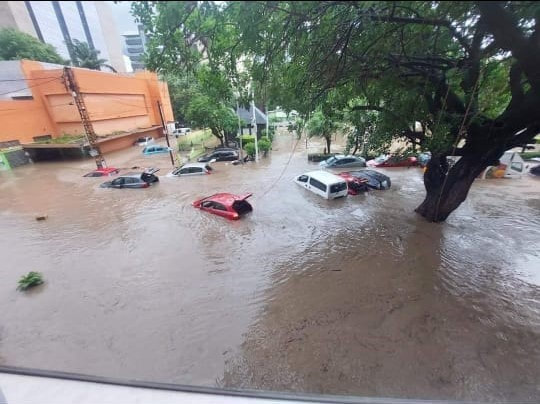
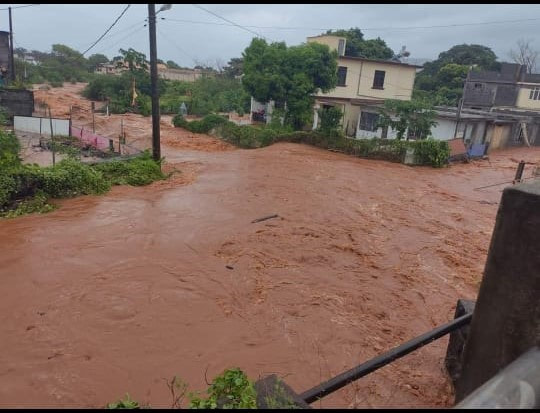
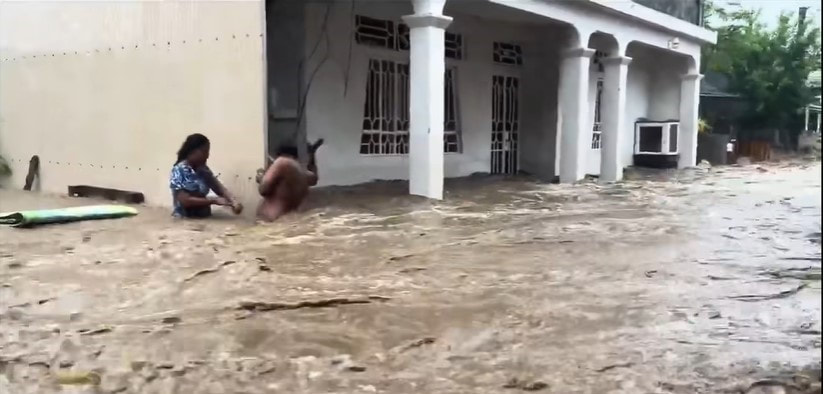
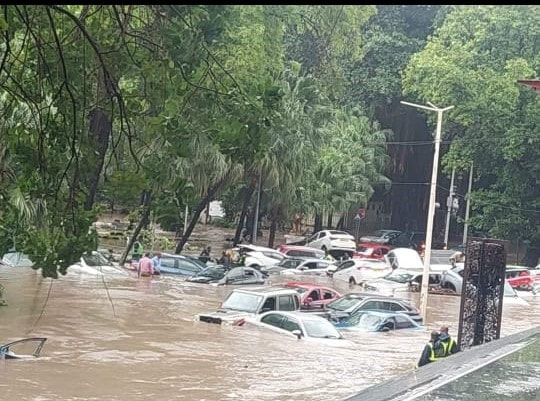
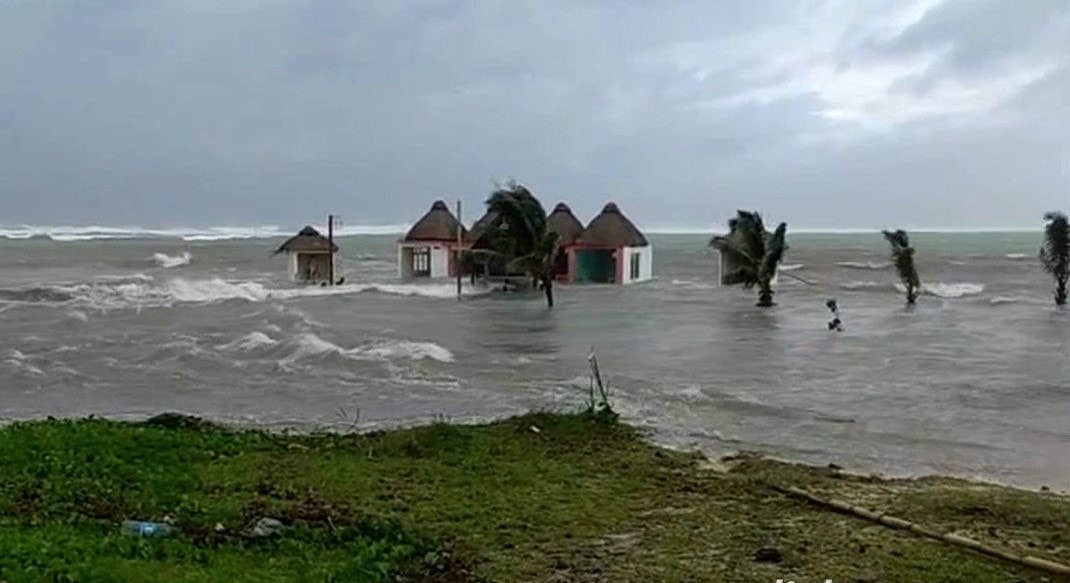
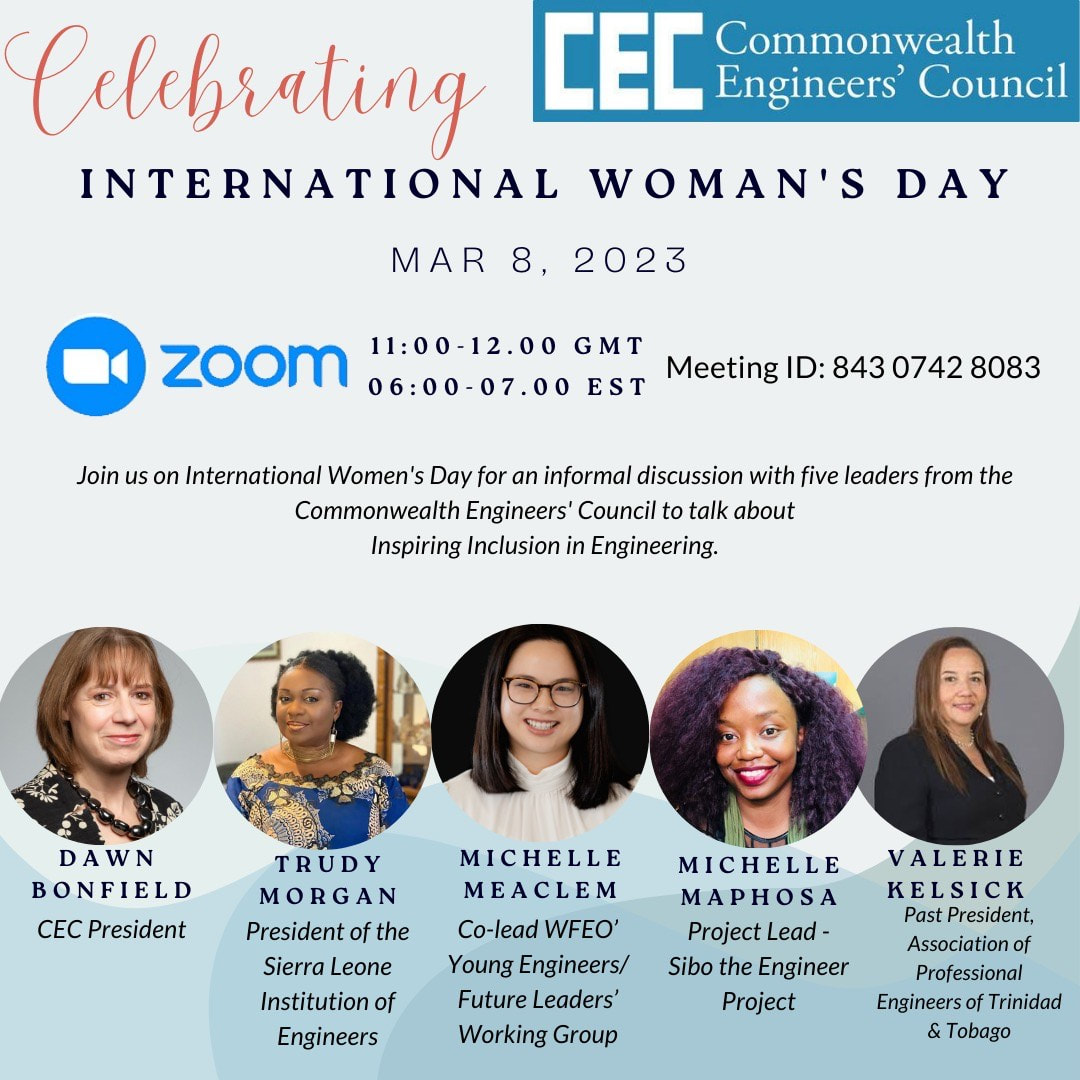
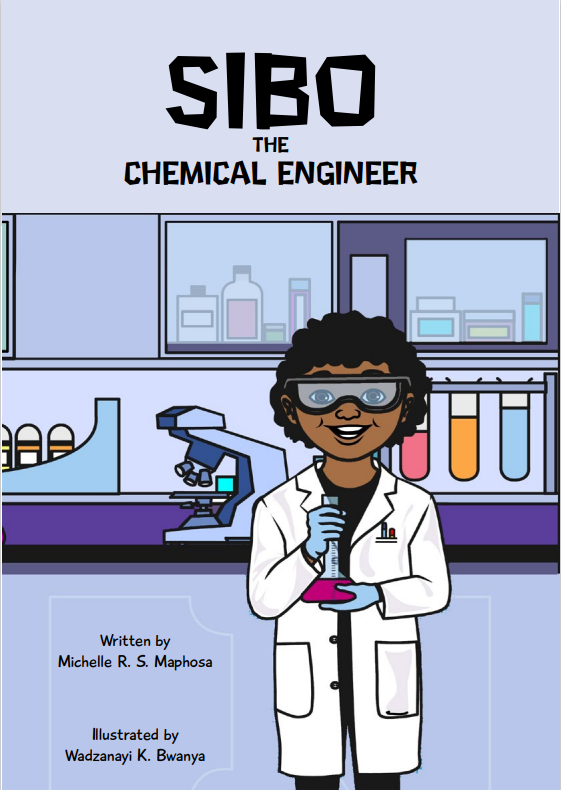

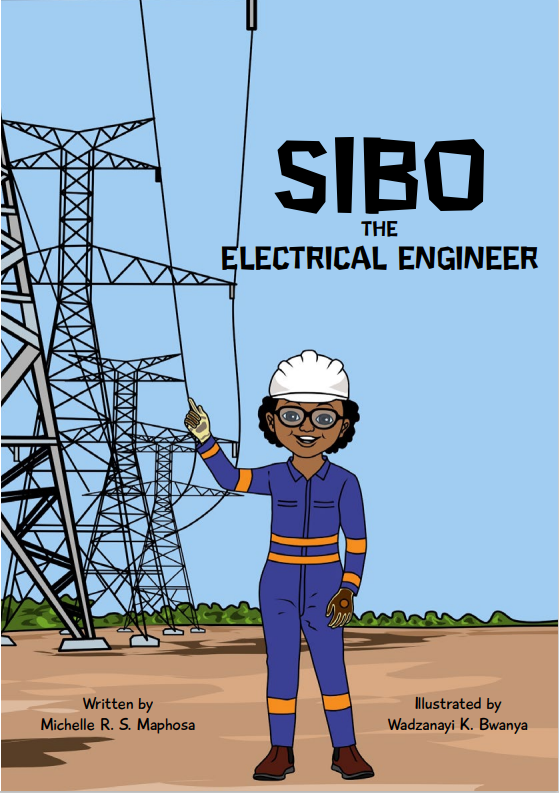
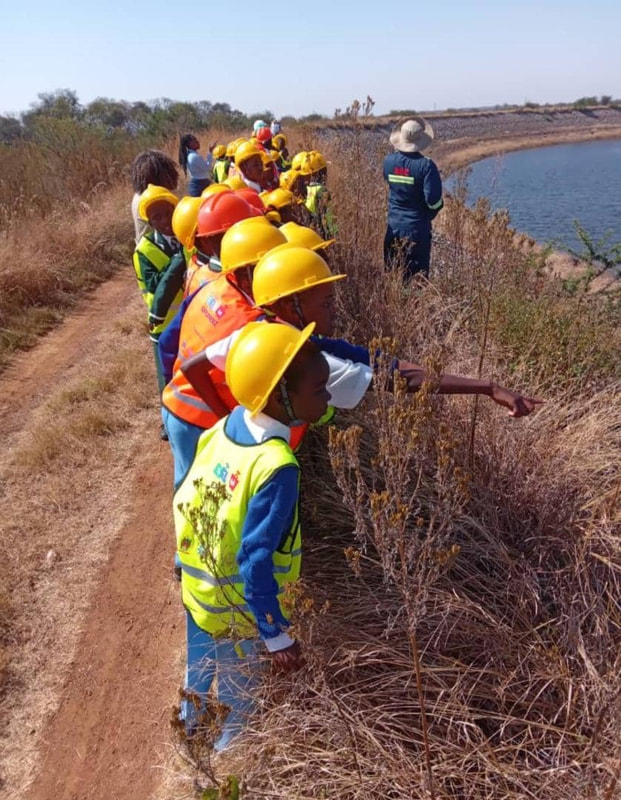
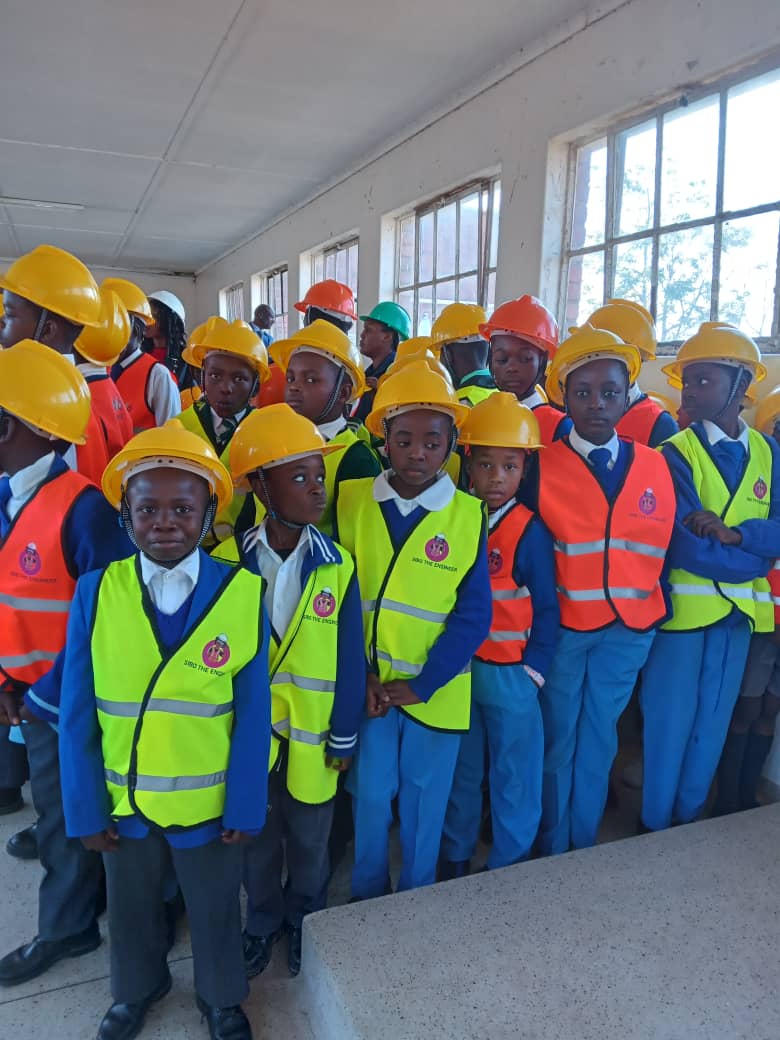
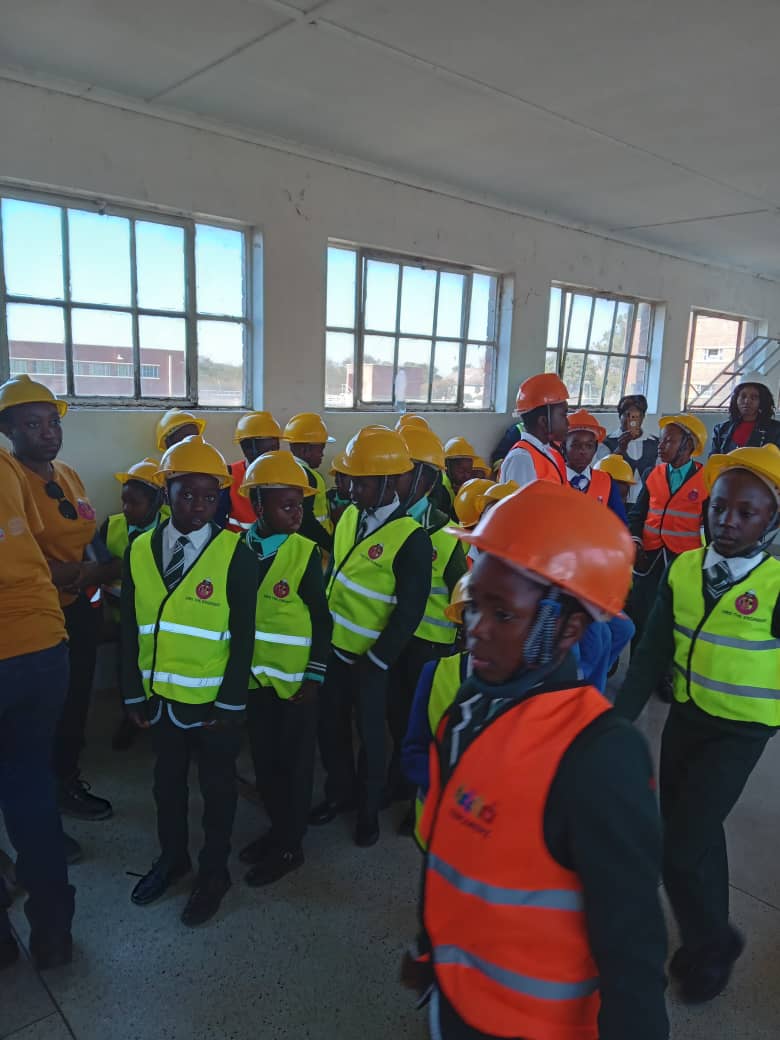
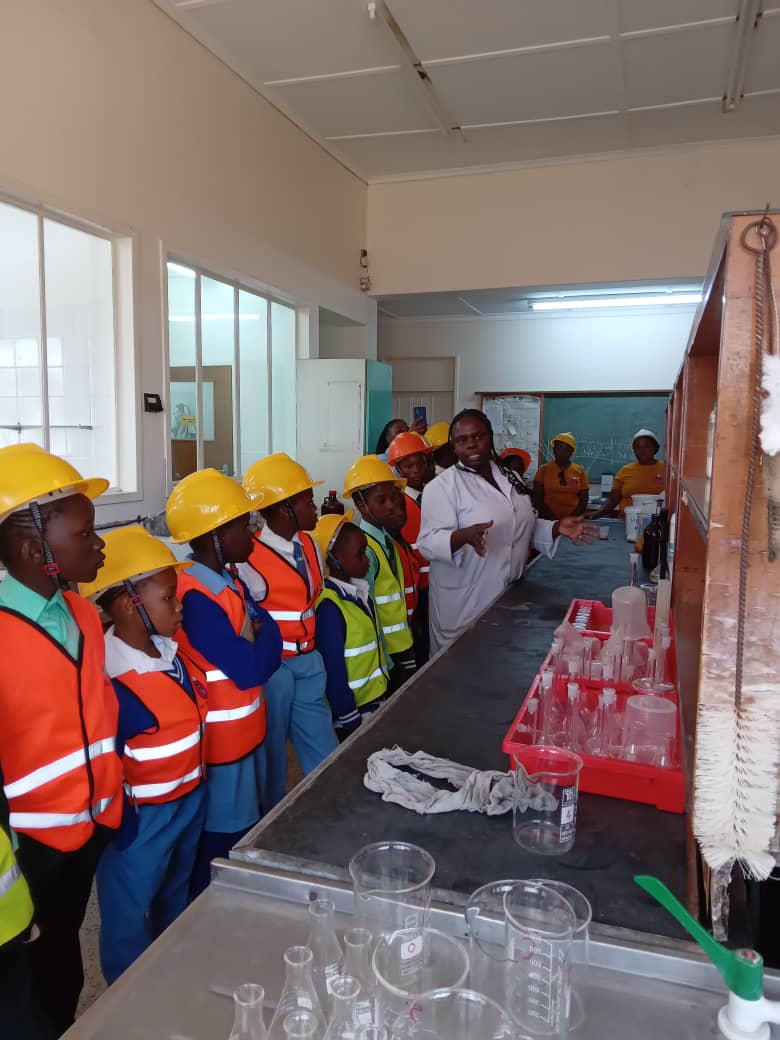
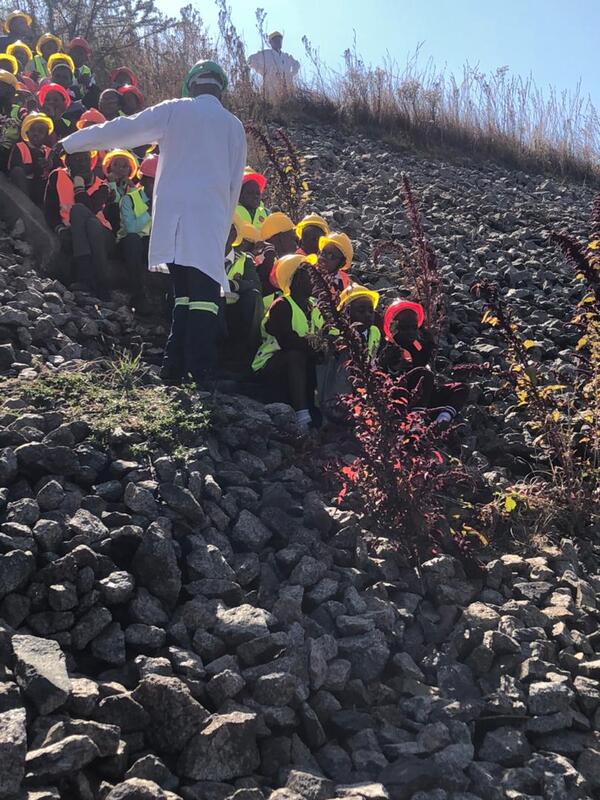
 RSS Feed
RSS Feed
